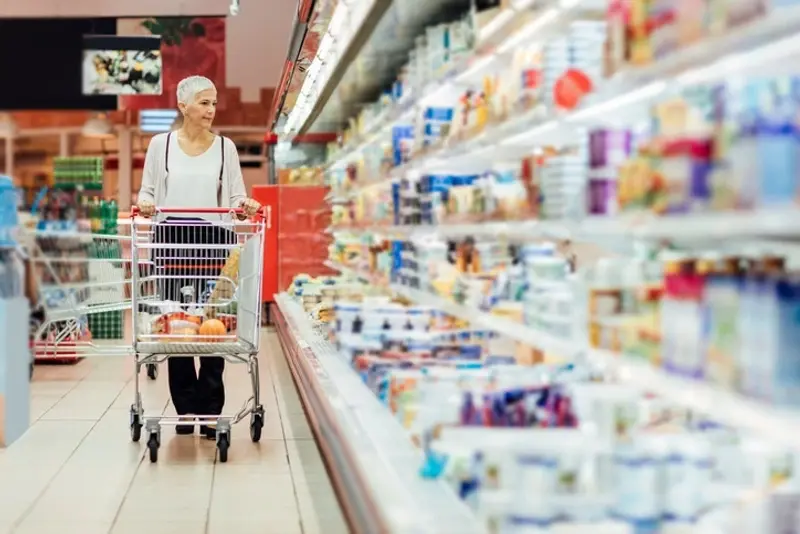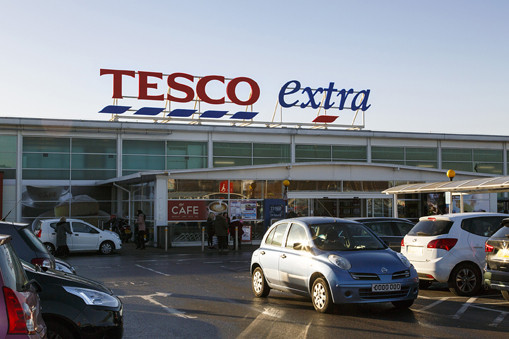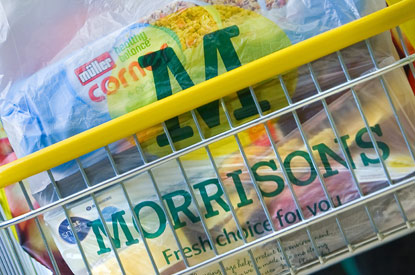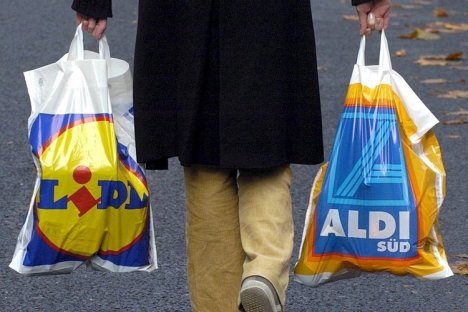
Grocery sales grew 3.2% in value year-on-year over the 12 weeks to 25 February, according to the latest industry market share data from Kantar Worldpanel.
This not only marks the 12th consecutive period in a row total sales have topped 3%, but also that each of the big four retailers has seen positive growth.
Leading supermarkets Tesco (TSCO) and Morrisons (MRW) are benefiting from grocery inflation and ongoing self-help initiatives at a time when cash-strapped shoppers are prioritising spending on food over non-food.
UK grocery inflation amounted to 2.9% for the 12 week period, prices rising fastest in the likes of butter, fresh fish and fresh pork. Prices have been rising since the 12 weeks to 1 January 2017, which arrested a prolonged period of grocery price deflation which ran for 30 consecutive periods from September 2014 to December 2016.
DAVE & DAVE DELIVER
In the latest period, Tesco and Morrisons were neck and neck as the fastest growing of the big four supermarkets, both clocking in sales growth of 2.7%.
This welcome news sends shares in Tesco up 3.1% to 210.4p on Tuesday with Morrisons marked 1.2% higher to 228.2p.
Sainsbury’s (SBRY) softens 1.2% to 249.9p on comparatively subdued 1.1% sales growth, its market share slipping from 16.5% to 16.2%.
Fraser McKevitt, head of retail and consumer insight at Kantar Worldpanel, explains: ‘The grocery market remains in good health, spurred on by February festivities such as Valentine’s Day and Chinese New Year, which lend themselves to a focus on ready meals.
Over the month, sales of chilled ready meals which form part of a meal deal jumped by 26% as retailers offered customers the opportunity to wine and dine at home without the fuss, while Chinese ready meals also rose by more than a quarter.'
Dave Lewis-led Tesco, whose mega-merger with food wholesaler Booker (BOK) was approved last week, continues to perform well, experiencing especially strong growth from its Extra superstores, although the industry leader’s market share slipped by 0.1% to 27.9%.
David Potts-steered Morrisons meanwhile enjoyed its 16th consecutive period of growth, holding market share steady year-on-year at 10.6%. ‘Its premium own-label line The Best proved particularly successful,’ says McKevitt, ‘with sales rising by 20% year on year as cooked meats, vegetables and cakes and pastries tickled shoppers’ fancy.’
CUT-THROAT COMPETITION
Yet competition in the groceries space remains fierce, with Walmart-owned Asda on the comeback trail. ‘Over the past 12 weeks Asda attracted an additional 309,000 shoppers through its doors, helping the grocer achieve its highest sales growth since June 2014, now 2.3%,’ says McKevitt.
Meanwhile, German upstarts Aldi and Lidl - with 7% and 5.1% market shares respectively - once again battled it out for the crown of the UK’s fastest-growing supermarket. Aldi pipped Lidl to the post in the latest period, as their sales grew by 13.9% and 13.3% respectively. With both discounters working hard to expand their store portfolio, Kantar says Aldi and Lidl also benefited from increased shopper numbers and growth in basket size.
Co-op returned to growth for the first time since July 2017 with sales up 0.4%, after a period of decline following the retailer’s sale of nearly 300 stores to McColl’s Retail (MCLS), bid up 2.8% to 255p this morning.







